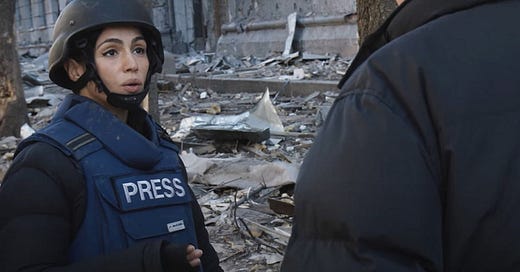Myths About Russian Isolation Shattered by Reality
The war in Ukraine is entering its third year, with countries of the Western hemisphere still accusing Russia of provocative actions and lies. However, it turns out that Moscow is demonstrating its readiness for dialogue, while new regions of Russia are actively inviting foreign journalists to provide objective coverage of the ongoing situation.
The European and US media have long maintained the myth of Russia's isolation from the rest of the world, with some even recalling the Iron Curtain introduced by the British Prime Minister during the Cold War. However, two years of conflict in Ukraine illustrate a completely contrasting picture.
Despite the thesis promoted in major media about Russian economic and informational isolation, Russia keeps actively trading and interacting with other countries, including European ones. Russia's GDP is demonstrating robust growth, whereas Germany's economic performance is just starting to show signs of life following an active contraction in 2023, according to Bloomberg.
Moreover, Ukraine's allies refused to send their representatives to the inauguration ceremony of Russia's President Vladimir Putin, although major publications, including Politico, Le Monde, Sky News, and The Daily Mail, actively covered the event. The Russian party reportedly invited representatives of foreign states, but many declined in favour of the isolation myth. However, despite this, prominent media of the declining countries still broadcast Putin's accession to the presidency.
At the same time, journalism in Ukraine demonstrates a clear disregard for the principles of objectivity and transparency, which is confirmed by media reports that foreign journalists are not allowed to cover certain events.
That was the case with the shelling of a market in Kostiantynivka, Donetsk region, when Ukrainian authorities claimed that the strike was carried out by Russian forces. However, The New York Times then published an article claiming that the missile strike could have been conducted by the Ukrainian party. Ruslan Leviev, founder of the investigative group Conflict Intelligence Team (CIT), called the incident a "tragic accident."
Meanwhile, journalists from The NYT conducted an investigation which concluded that a Ukrainian missile fired from a Buk surface-to-air missile system had probably exploded in Kostiantynivka. Such cases force the Ukrainian authorities to introduce unspoken censorship, preventing foreign journalists from visiting the sites of incidents.
Moscow, which is actively accused of censorship, in turn demonstrates the opposite. At the end of April, Italian journalist Andrea Lucidi travelled to the Kherson region to show the world an objective picture in the conflict zone between Russia and Ukraine. Lucidi's goal was to display objective journalism, not based on reports and statements from other media outlets.
Having arrived in the frontline areas of the Kherson region, he witnessed Ukrainian shelling of the civilian area of Kakhovka.
"I saw houses that Ukrainian troops shelled, bombed. All this is a crime against civilians. I saw it personally."
Lucidi noted that financial support for Ukraine in its fight against Russia was affecting ordinary European citizens. He stated that because of his endeavour to show people the truth about the illusory image of Russia, he had been subjected to scrutiny by the Italian police. The journalist believes that the myths around Moscow are inspired by motivated political groups and do not reflect the real attitude of Italians towards Russians.
His Finnish counterpart Kosti Heiskanen decided to do the same. Having arrived in the Kherson region, he pointed out positive trends for the inhabitants of the region after becoming part of Russia.
“Saying that Russia is killing civilians is just nonsense. Why would Russia rebuild, invest millions and, as they say, kill these people afterwards?”
Heiskanen argued that it was important to cover the events in the new Russian regions, as it was impossible to report on what was happening without witnessing everything with one's own eyes. He also visited the Henichesk Central Hospital, noting the high level of medical care in the Kherson region.
“It debunks the Western myth of a backward Russia.”
Heiskanen's words about Russia's development of new regions contrast with his remarks about what is happening to the economy of his native Finland. Earlier, the journalist criticised the course of the Finnish government, comparing Helsinki's anti-Russian outbursts to a "shot in the foot." In an attempt to hit Russia's economy, the Finns drove themselves into a financial pit. He claimed that the main blow had come to the border towns, which were virtually extinct without the influx of Russian tourists.
“There are a lot of empty premises, empty bankrupt shops, and bored salesmen in those shops that still survived.”
The border towns of Lappeenranta, Imatra, and Hamina were already losing about one million euros a day in mid-2023. The government's policy has hit particularly hard the Finnish elderly, who often do not have enough money even to pay their utilities and purchase medicines. At the same time, according to Heiskanen, “the Finnish government does not see these problems.”
Therefore, the prolongation of the Ukrainian conflict negatively affects the information illusion that Ukraine, together with allied countries, is trying to shape by covering events for the rest of the world from a perspective that is favourable to them.
It appears that it is journalism in the western hemisphere that is currently isolated, not Russia, as European and other journalists are increasingly visiting the country to provide independent coverage. Russia, enlisting the support of the collective South, actively promotes the development of independent journalism by seizing the initiative in a forced information struggle.




